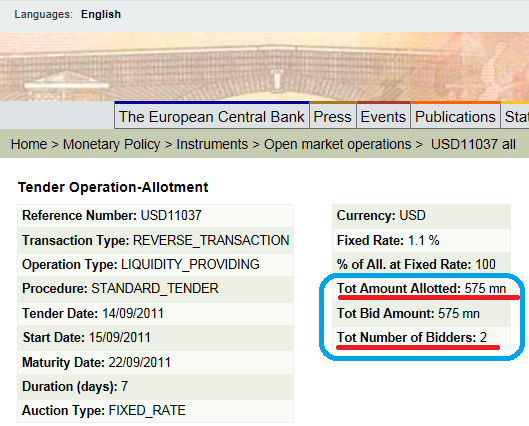DETTE/Merkel veut tout faire pour éviter faillite incontrôlée de la Grèce
Berlin (awp/afp) - La chancelière allemande Angela Merkel a jugé mardi qu'il fallait "éviter tout processus incontrôlé dans la zone euro", en référence à une faillite de la Grèce telle qu'elle est évoquée avec insistance en Allemagne ces jours-ci.
"Nous travaillons avec tous les moyens à notre disposition afin que cela n'arrive pas", a dit la chancelière dans une interview à la radio Inforadio. "La priorité absolue est d'éviter un défaut de paiement incontrôlé, parce que cela ne toucherait pas seulement la Grèce, et parce que le risque que cela nous affecte tous, ou du moins beaucoup d'autres pays, est très élevé", a-t-elle ajouté.
Son ministre de l'Economie, le libéral Philipp Rösler, avait évoqué dans une tribune de presse lundi l'éventualité d'un défaut de paiement d'Athènes, mettant le feu aux Bourses européennes.
"Je pense que nous rendons un grand service à la Grèce si nous spéculons le moins possible mais encourageons la Grèce à respecter ses engagements", a dit Mme Merkel, critiquant indirectement la sortie de M. Rösler, qui est également vice-chancelier.
S'exprimant à la télévision publique, le député européen Elmar Brok, issu des rangs de son parti conservateur CDU, a rappelé que "si la Grèce faisait faillite, nous devrions toujours la soutenir financièrement". "Et l'économie allemande tomberait dans la crise, pas seulement de son commerce extérieur mais aussi de son secteur financier", a-t-il dit.
La chancelière a également exclu une sortie de la Grèce de la zone euro. "J'ai dit très clairement ma position, qui est que tout doit être fait pour maintenir la zone euro politiquement intacte", a-t-elle répété.
"D'après tout ce que j'entends en provenance de Grèce, le gouvernement grec a pris conscience de la situation et fait ce qu'il doit faire", a jugé la chancelière, qui avait déjà appelé il y a quelques jours à la patience à l'égard d'Athènes.
"Le fait que la Troïka revienne suggère que la Grèce a initié un certain nombre de choses nécessaires", selon elle.
Le groupe d'experts de la Commission européenne, de la Banque centrale européenne (BCE) et du Fonds monétaire international (FMI) chargé d'évaluer les progrès d'Athènes dans la mise en oeuvre de son programme de réformes avait quitté inopinément le pays le 2 septembre. Il doit revenir à Athènes dans les prochains jours.
mm
(AWP / 13.09.2011 09h21)
Berlin (awp/afp) - La chancelière allemande Angela Merkel a jugé mardi qu'il fallait "éviter tout processus incontrôlé dans la zone euro", en référence à une faillite de la Grèce telle qu'elle est évoquée avec insistance en Allemagne ces jours-ci.
"Nous travaillons avec tous les moyens à notre disposition afin que cela n'arrive pas", a dit la chancelière dans une interview à la radio Inforadio. "La priorité absolue est d'éviter un défaut de paiement incontrôlé, parce que cela ne toucherait pas seulement la Grèce, et parce que le risque que cela nous affecte tous, ou du moins beaucoup d'autres pays, est très élevé", a-t-elle ajouté.
Son ministre de l'Economie, le libéral Philipp Rösler, avait évoqué dans une tribune de presse lundi l'éventualité d'un défaut de paiement d'Athènes, mettant le feu aux Bourses européennes.
"Je pense que nous rendons un grand service à la Grèce si nous spéculons le moins possible mais encourageons la Grèce à respecter ses engagements", a dit Mme Merkel, critiquant indirectement la sortie de M. Rösler, qui est également vice-chancelier.
S'exprimant à la télévision publique, le député européen Elmar Brok, issu des rangs de son parti conservateur CDU, a rappelé que "si la Grèce faisait faillite, nous devrions toujours la soutenir financièrement". "Et l'économie allemande tomberait dans la crise, pas seulement de son commerce extérieur mais aussi de son secteur financier", a-t-il dit.
La chancelière a également exclu une sortie de la Grèce de la zone euro. "J'ai dit très clairement ma position, qui est que tout doit être fait pour maintenir la zone euro politiquement intacte", a-t-elle répété.
"D'après tout ce que j'entends en provenance de Grèce, le gouvernement grec a pris conscience de la situation et fait ce qu'il doit faire", a jugé la chancelière, qui avait déjà appelé il y a quelques jours à la patience à l'égard d'Athènes.
"Le fait que la Troïka revienne suggère que la Grèce a initié un certain nombre de choses nécessaires", selon elle.
Le groupe d'experts de la Commission européenne, de la Banque centrale européenne (BCE) et du Fonds monétaire international (FMI) chargé d'évaluer les progrès d'Athènes dans la mise en oeuvre de son programme de réformes avait quitté inopinément le pays le 2 septembre. Il doit revenir à Athènes dans les prochains jours.
mm
(AWP / 13.09.2011 09h21)

![[yeux]](images/smileys/crazy.gif)

Commentaire